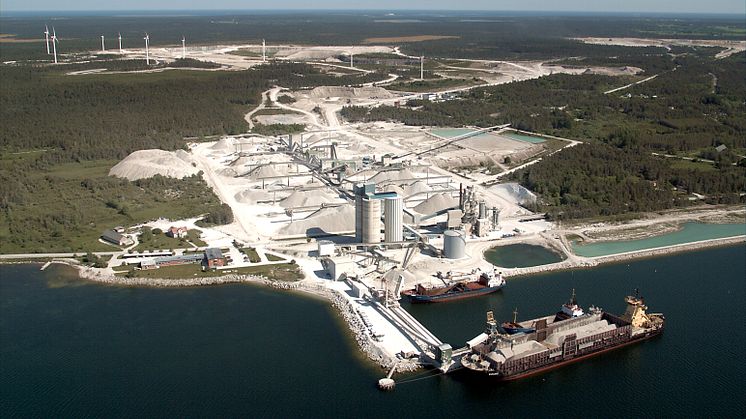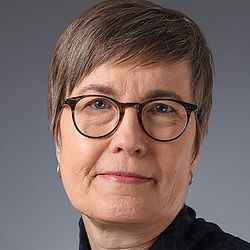
Press release -
Project has reduced CO2 emissions from Swedish lime kilns
Carbon dioxide emissions from lime kilns in Sweden have been reduced by more than 36 000 tons per year. This has been achieved through a collaboration between the Centre for Sustainable Cement and Quicklime Production at Umeå University, Nordkalk AB and the Swedish Energy Agency.
"The project focuses on implementing biofuels as an alternative to fossil fuels in lime kilns, which has been very successful," says Matias Eriksson, director of the Centre for Sustainable Cement and Quicklime Production and adjunct associate professor at the Department of Applied Physics and Electronics at Umeå University.
The project "Renewable Energy Carriers in Quicklime Production" aims to investigate and demonstrate how biofuels can be introduced as an alternative to fossil fuels in lime kilns. The aim is to reduce fossil carbon dioxide emissions in the production of quicklime by promoting the use of renewable energy carriers, such as forestry or agricultural residues, or refined biofuels.
"The project goal is to reduce carbon dioxide emissions from non-renewable energy carriers in Nordkalk AB's quicklime production by 46 percent, which corresponds to 71,000 tons of carbon dioxide per year" says Matias Eriksson.
To achieve this, the project has set two sub-goals, to implement 100 percent renewable energy carriers at Kalkproduktion Storugns AB's (KPAB) lime kiln in Lärbro, and to integrate 30 percent renewable energy carriers at Nordkalk AB's lime kiln in Köping.
"Nordkalk has achieved remarkable success in replacing coal with biofuels at the lime kiln in Köping" says Matias Eriksson. ”The kiln in Köping, which produces high-quality lime for steel and pulp customers, has exceeded the target of 30 percent of the fuel being biomass and is now working to reach 50 percent. Trial runs with 100 percent liquid biofuel are also being conducted at KPAB on Gotland, a company in which Nordkalk is the majority shareholder. These tests aim to evaluate the suitability of the biofuel for continuous operation.”
In addition to providing practical implementation support to Nordkalk and KPAB, researchers and PhD students at the Centre for Sustainable Cement and Quicklime Production have conducted laboratory studies investigating selected biofuels in a simulated industrial environment.
"These studies evaluate the impact of biofuels on limestone, quicklime and refractory materials under controlled conditions, providing a detailed understanding of the possibilities and limitations of fuel switching" says Markus Broström, Professor at the Department of Applied Physics and Electronics at Umeå University.
The project has resulted in several publications.
Read more about published studies at the Centre for Sustainable Cement and Quicklime Production
For more information, please contact:
Matias Eriksson, director for the Centre for Sustainable Cement and Quicklime Production and associate professor, Department of Applied Physics and Electronics, Umeå University
Phone: +46 90 786 70 68
E-mail matias.eriksson@umu.se
Markus Broström, professor, Department of Applied Physics and Electronics, Umeå University
Phone: +46 90 786 59 71
E-mail: markus.brostrom@umu.se
Mikael Wendel, technical director, Nordkalk
Phone: +46 10 476 2561
E-mail: mikael.wendel@nordkalk.com
Topics
Categories
Umeå University
Umeå University is one of Sweden’s largest institutions of higher education with over 37,000 students and 4,300 faculty and staff. The university is home to a wide range of high-quality education programmes and world-class research in a number of fields. Umeå University was also where the revolutionary gene-editing tool CRISPR-Cas9 was discovered that has been awarded the Nobel Prize in Chemistry.
At Umeå University, distances are short. The university's unified campus encourages academic meetings, an exchange of ideas and interdisciplinary co-operation, and promotes a dynamic and open culture in which students and staff rejoice in the success of others.


